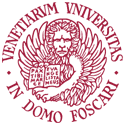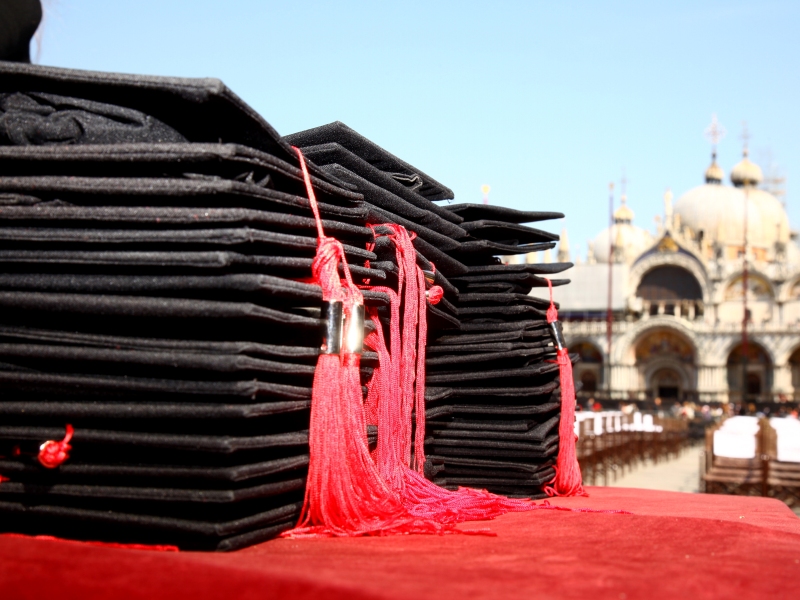Graduate
Final degree exam
University procedure
Annual deadlines for request to graduate
- 1-10 April for the Summer session;
- 1-10 September for the Autumn session;
- 1-10 December for the extraordinary session;
- 5-12 January for extraordinary session paying a surcharge of 100 euros.
Thesis and final degree exam: deadlines, admission and procedures
Degree Programme Regulations
For anything not provided for in this Regulation, reference is made to Article 29 of the University Teaching Regulations.
This Regulation is approved by the Board of the Department of Molecular Sciences and Nanosystems during the meeting held on 19/09/2024.
This Regulation shall come into effect for students enrolled in the Degree Programme in Science and Technology for Cultural Heritage from the academic year 2023/2024, ordination M.D. 270/04.
Students who will carry out On-Campus Training Activities (AFC) in a research laboratory of the Department of Molecular Sciences and Nanosystems (DSMN) must first fill in and sign the form "Dichiarazione avvenuta informazione sulla salute e sicurezza sul luogo di lavoro(D.Lgs. 81/08)", have it countersigned by the lecturer in charge of the laboratory and submit the original hard copy to DSMN Educational Programmes Office (4th floor, Alfa building, Scientific Campus, via Torino 155, Mestre).
|
|
Regulations for traineeship and final degree exam for students enrolled from the a.y. 2023/2024
Update 2024, Bachelor's Degree Programme in Science and Technologies for Cultural Heritage |
215 KB |
|
|
Regulations for traineeship and final degree exam for students enrolled from the a.y. 2020/2021
Bachelor's Degree Programme in Science and Technologies for Cultural Heritage |
119 KB |
|
|
Final degree exam application form [ITA] | 187 KB |
|
|
Declaration of information on health and safety at work (Legislative decree 21/2008) [ITA] | 132 KB |
|
|
Declaration of information on health and safety at work (Legislative decree 21/2008) [ITA] | 2 MB |
Internship regulation
Article 1
Based on the internship application submitted by the student on the specific form, the Teaching Committee of the Bachelor’s Degree Programme in Science and Technologies for Cultural Heritage approves the internship project and assigns the student one or two tutors.
Two types of internships are available:
- External internship (Tirocinio esterno). External internships take place at an institution, research laboratory, or company that is not affiliated with the University. Before starting an external internship, there must be a prior agreement between the external party and the University. The guidelines for external internships comply with current legislation and the general University regulation, which are available at the dedicated pages of the website.
- On-Campus Training Activity (Attività Formativa in Campus, AFC). On-Campus training activities take place in the laboratories of Ca’ Foscari University of Venice. The content, timing, and methods of the activity need to be discussed and agreed upon with the assigned University tutor. The University tutor is the main responsible for overseeing the completion of the activity.
In the case of an external internship, there will be two tutors: a member of the teaching staff of either the Science and Technologies for Cultural Heritage or the Conservation Science and Technology for Cultural Heritage Degree Programmes and one tutor indicated by the institution, research laboratory or company outside the University.
For On-Campus Training Activities the tutor must be a member of the teaching staff of either the Science and Technologies for Cultural Heritage or Conservation Science and Technology for Cultural Heritage programmes, a contract lecturer of the Degree Programme or a member of the University teaching staff, provided that they have been approved by the Teaching Committee.
Please refer to the University regulation regarding the necessary fulfilments for external internships. A minimum of 120CFUs must be obtained to be eligible for internship activities.
Article 2
Tutors are responsible for guiding and coordinating the student’s work and for promoting compliance with all the fulfilments of these Regulations, except where otherwise provided.
The University tutor will communicate the official start of the On-Campus Training Activity.
Article 3
The internship is worth 5 CFUs and involves conducting study and/or research activities on a specific topic, which is agreed upon between the student and the tutor.
To complete the internship, students must attend the Information Literacy - Basic level course delivered by the Science and Technology Library (Biblioteca di Area Scientifica - BAS).
Article 4
Students wishing to carry out an external internship in Italy or abroad can replace the 6 CFUs required for the Interdisciplinary Practical Activities (Laboratorio Interdisciplinare) with 6 additional CFUs for the internship. To do this, they must submit an online application to the Scientific Campus Services Secretariat with the prior authorisation of the Coordinator of the Teaching Committee.
Final Examination Regulation
Article 1
Based on the final examination application submitted by the student, the Teaching Committee of the Bachelor’s Degree Programme in Science and Technologies for Cultural Heritage approves the thesis project and assigns the graduating student one or two supervisors.
The supervisor(s) must be a member of the teaching staff of either the Science and Technologies for Cultural Heritage or Conservation Science and Technology for Cultural Heritage programmes, a contract lecturer at the Degree Programme, or members of the University teaching staff, provided that they have been approved by the Teaching Committee.
The Teaching Committee may authorise a thesis to be carried out with external supervisors, provided a member of the teaching staff from the Degree Programmes in Science and Technologies for Cultural Heritage or Conservation Science and Technology for Cultural Heritage acts as co-supervisor.
To be eligible for the thesis activity, students must have obtained at least 130 CFUs and the internship, as confirmed by the supervisor with the statement: “Successful internship.”
Article 2
Supervisors are responsible for guiding and coordinating the student’s work and for promoting compliance with all the fulfilments of these Regulations, except where otherwise provided.
Article 3
For graduating students, the Teaching Committee appoints a Final Examination Panel consisting of the supervisor and a co-examiner chosen among the teaching staff of the Science and Technologies for Cultural Heritage or Conservation Science and Technology for Cultural Heritage programmes.
Article 4
The final examination consists of the student presenting a written dissertation prepared under the guidance of the supervisor.
A digital copy of the written dissertation, with a cover letter by the supervisor, must be submitted to the co-examiner by the deadline set by the University for each graduation session.
Article 5
The final examination assessment will take into consideration the student’s entire academic career.
Article 6
The Final Examination Panel may award between 0 and 6 points; the Final Examination Panel may assign bonus points, following University regulations.
The supervisor must submit the request for honours in writing to the co-examiner. A necessary condition for applying for honours is that the sum of the candidate’s weighted average of the exam grades, the additional bonus points and the final examination points is higher than 110.
Article 7
The proclamation and awarding of Diplomas will take place on the graduation day, scheduled for each graduation session following University procedures.
National directories of professionals and Cultural Heritage Professionals
On 11 June 2014, the 7th Senate Standing Committee approved Draft Law 362 on the recognition of cultural heritage professionals (S. 1249 “Dispositions containing amendments to the Code of Cultural Heritage and Landscape”), already approved by the Chamber of Deputies [ITA], which also recognises, among others, the profession of experts in diagnostics and science and technology applied to cultural heritage.
|
|
Draft Law 362 [ITA] | 511 KB |
This is very important news for Ca' Foscari students in Conservation Science and Technology for Cultural Heritage, in Chemical Sciences for Conservation and Restoration and in Science and Technologies for Cultural Heritage, whose professions are finally being regulated and whose skills acquired during their training courses - designed according to criteria whose validity and effectiveness are recognised nationally and internationally - are now officially acknowledged.
In particular, the amendments to the law stipulate that 'interventions for the protection, monitoring, inspection, conservation and enjoyment of the cultural heritage are entrusted, according to their respective competences, to archaeologists, archivists, librarians, demographic and ethnographic anthropologists, physical anthropologists, experts in diagnostics applied to the cultural heritage, and art historians in possession of adequate training and skills'.
National directories of archaeologists, archivists, librarians, demographic and ethnographic anthropologists, physical anthropologists, experts in diagnostics and science and technology applied to cultural heritage, and art historians, in possession of the identified requirements, will also be established.
“Thousands of cultural heritage professionals have been waiting to see their profession recognised. This law, which is the result of a wide-ranging and in-depth dialogue with all the categories concerned, fully meets their needs and offers the State one more instrument to fulfil its constitutional requirements. There is no doubt, in fact, that the cultural heritage cannot be fully preserved and enhanced if the skills of those who work on it every day are not valued”.
This is how the Minister for Cultural Heritage and Activities and Tourism, Dario Franceschini, welcomed the final approval of the law recognising the cultural professions.
Ca' Foscari offers a wide range of degree courses devoted to cultural heritage. The attention given to Italy's cultural heritage, also encouraged by the university’s unique geographical location, and the recognition of the related professions, makes Ca' Foscari an important national point of reference in this field.
With Italian Decree No. 244 of 20 May 2019, the Italian Ministry for Cultural Heritage and Activities regulated the procedures and requirements for the registration of professionals in the national directories of experts in diagnostics and science and technology applied to cultural heritage, established at the Ministry pursuant to Article 2, paragraph 1, of Italian Law No. 110 of 22 July 2014 [ITA].
In order to register on the national directories of experts in diagnostics and science and technology applied to cultural heritage, applicants must provide, among other criteria, documented experience, continuous or otherwise, in the field of science applied to the conservation of cultural heritage (including any curricular traineeships). On 30 April 2020 the national coordination body for study courses activated for class L-43 (Diagnostics for the Conservation of Cultural Heritage) and class LM-11 (Conservation Science for the Cultural Heritage) recognised, based on the credits for practical and laboratory activities envisaged in the respective curricula:
- 3 months of experience in the field of science applied to cultural heritage to students who graduate from the L-43 Bachelor's Degree Programme (Diagnostics for the Conservation of Cultural Heritage) for laboratory, internship and thesis activities carried out within the student's university
- 9 months of experience in the field of science applied to cultural heritage to students who graduate from the LM-11 Master's Degree Programme (Conservation Science for the Cultural Heritage) for laboratory, internships and thesis activities carried out within the student's university.
Graduates in Conservation Science and Technology for Cultural Heritage (LM-11) and in Science and Technologies for Cultural Heritage (L43) at Ca' Foscari may request recognition of this experience directly from the Teaching Committees of their respective study courses.
Please note that the directories are not professional registers and failure to register does not in any way preclude one from practising the profession.
For more information:
Contacts
Scientific Campus
ADiSS - Scientific Campus
Via Torino 155 [ITA], Epsilon building (ground floor), 30170 Venezia Mestre (Italy)
Campus services: campus.scientifico@unive.it
External internships: stage.areascienze@unive.it
Information tutors: tutor.campus.scientifico@unive.it




